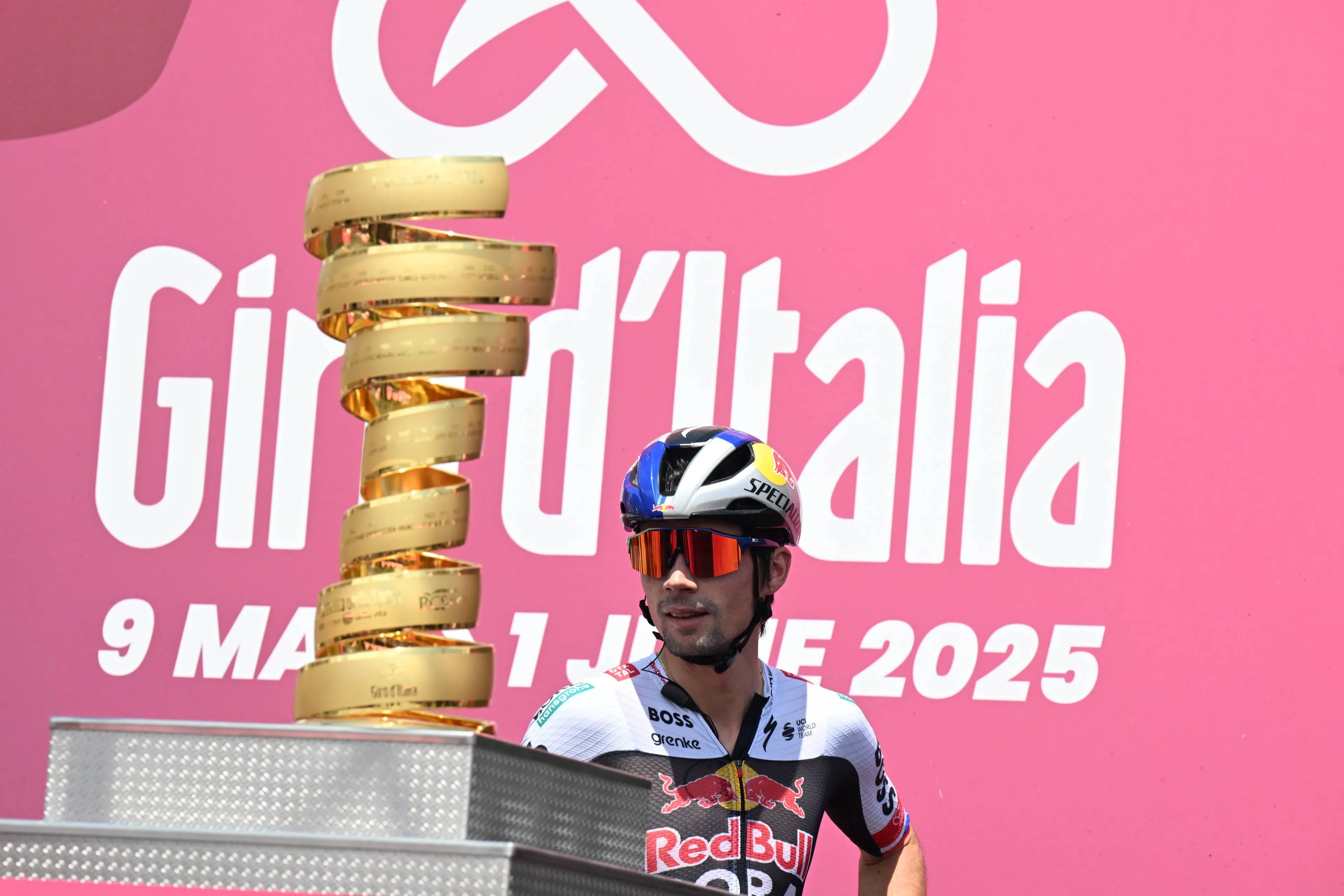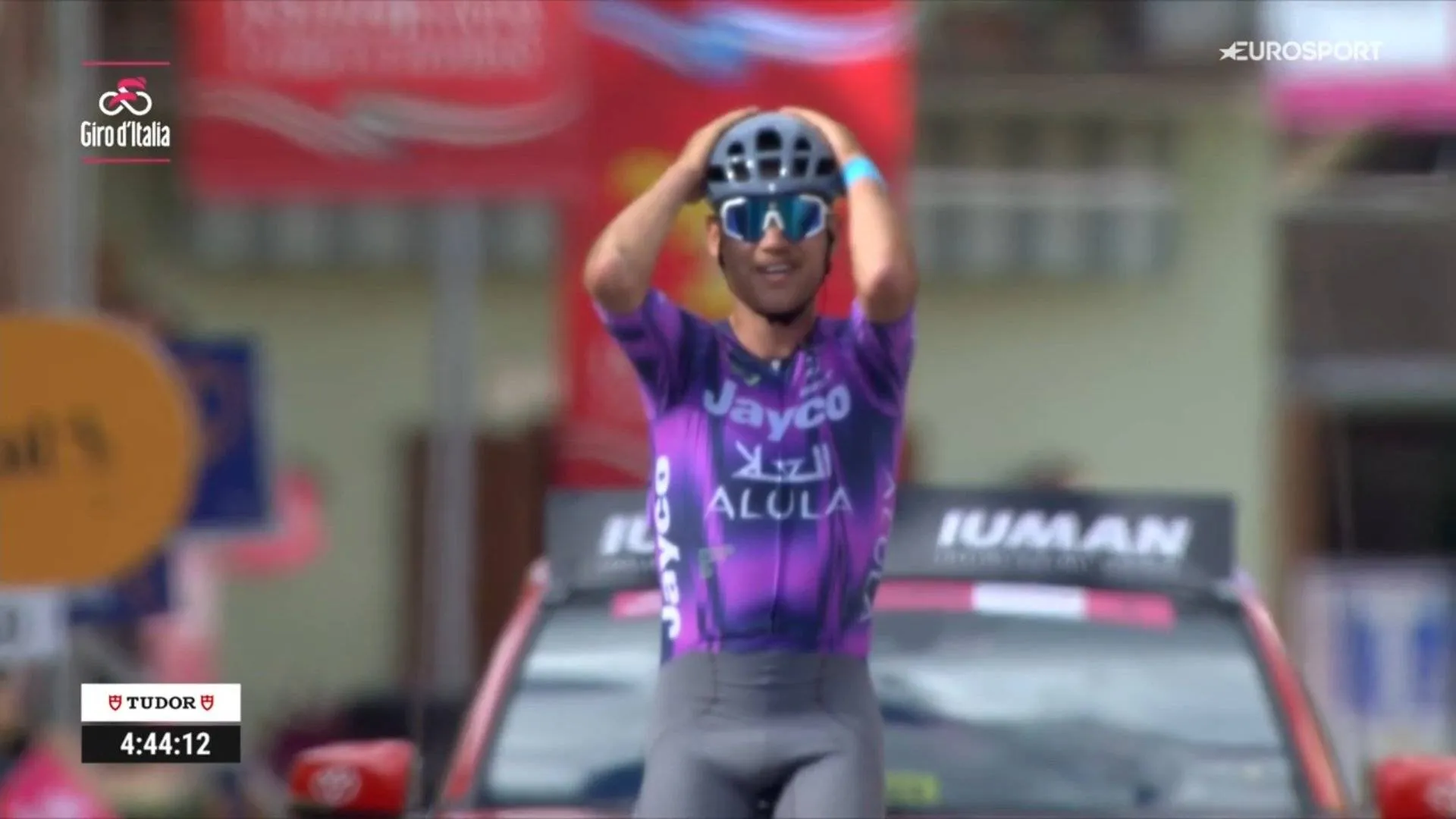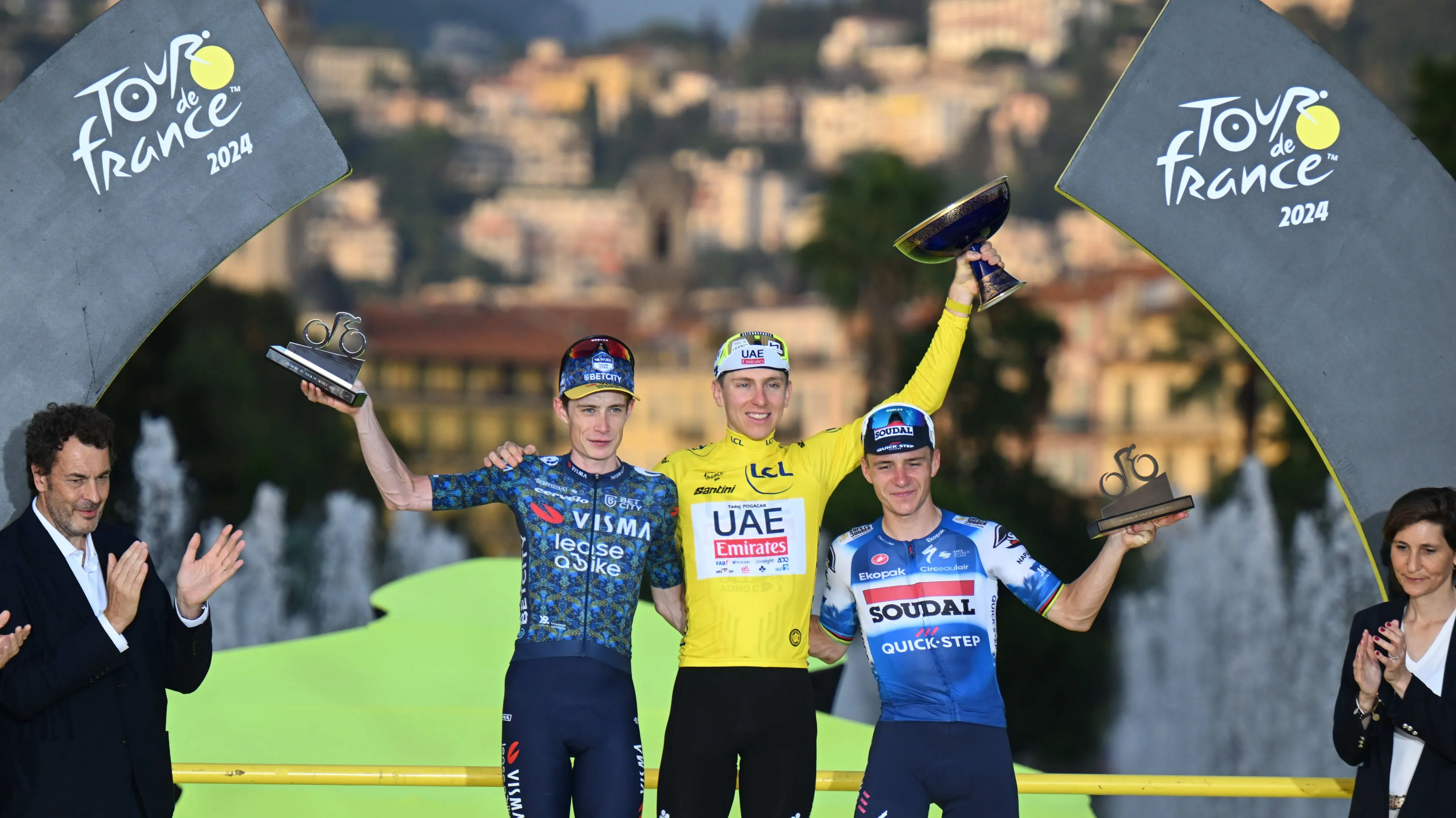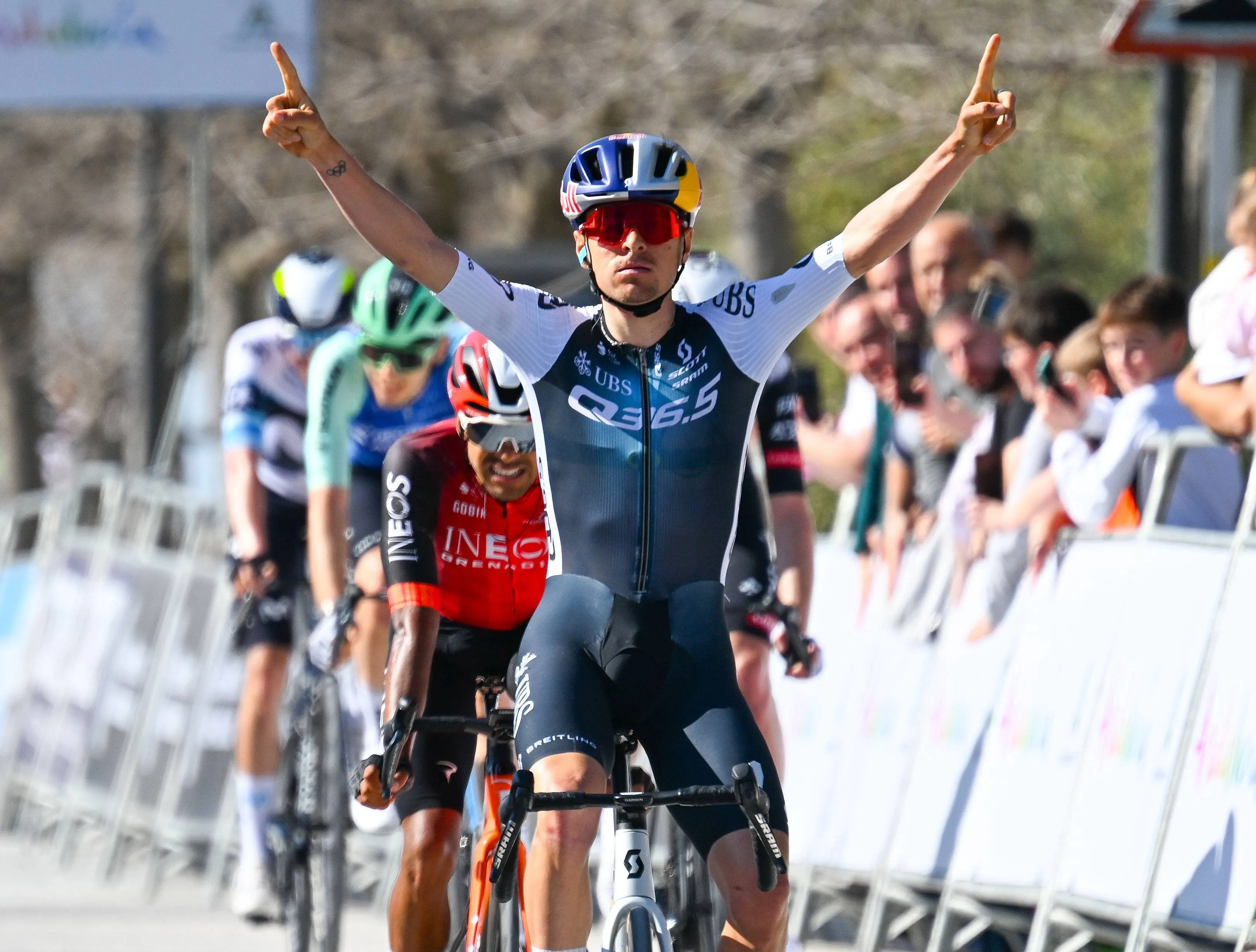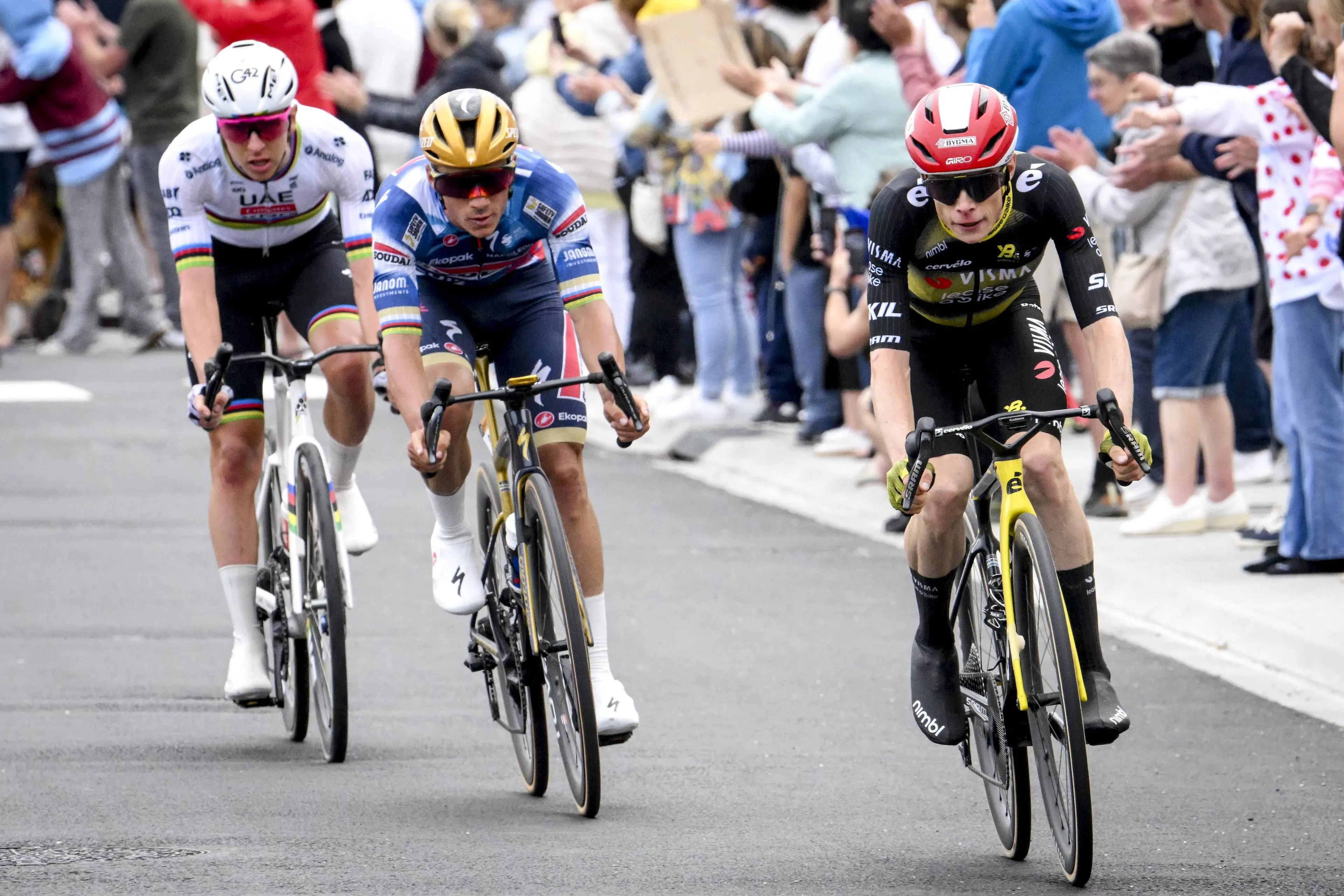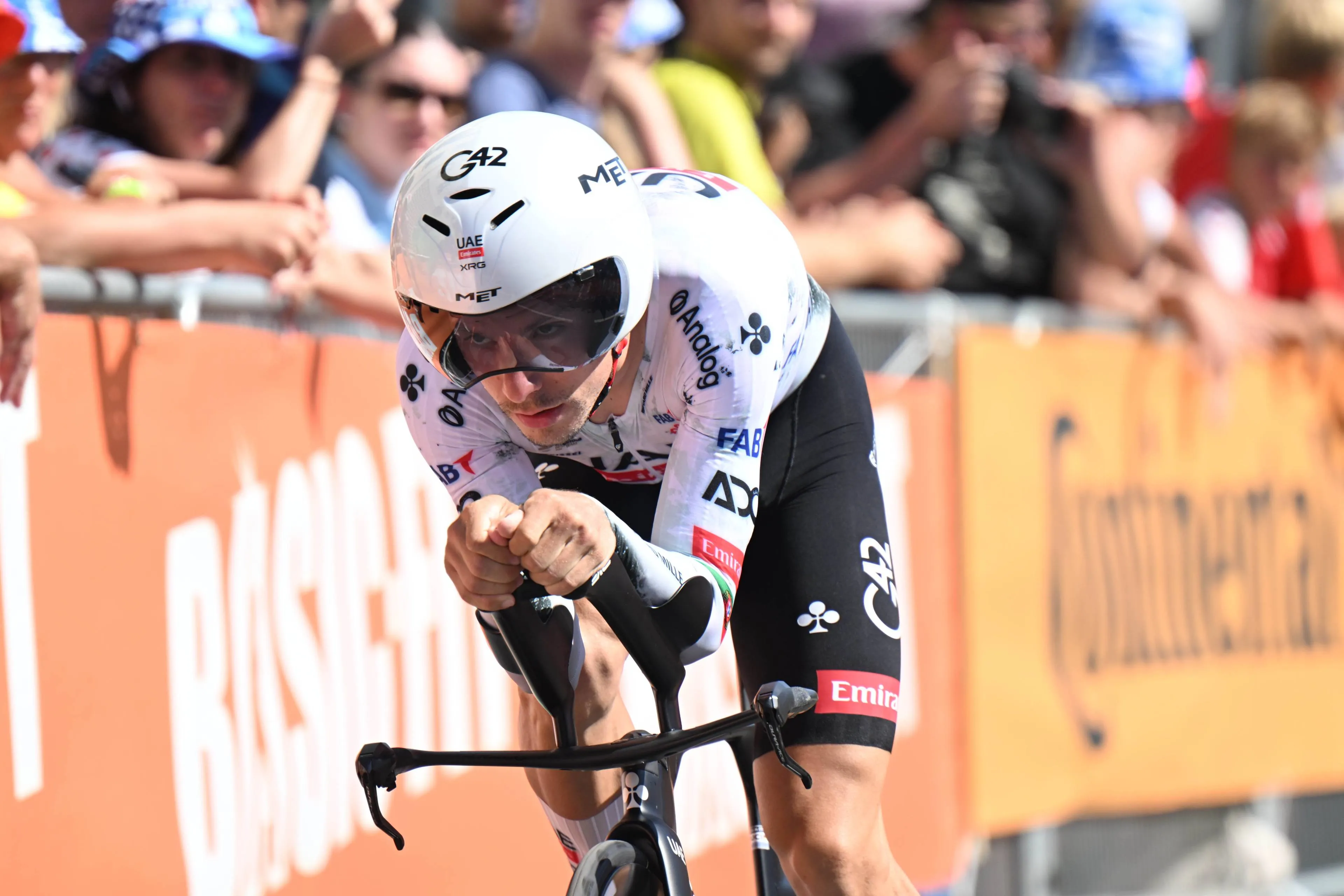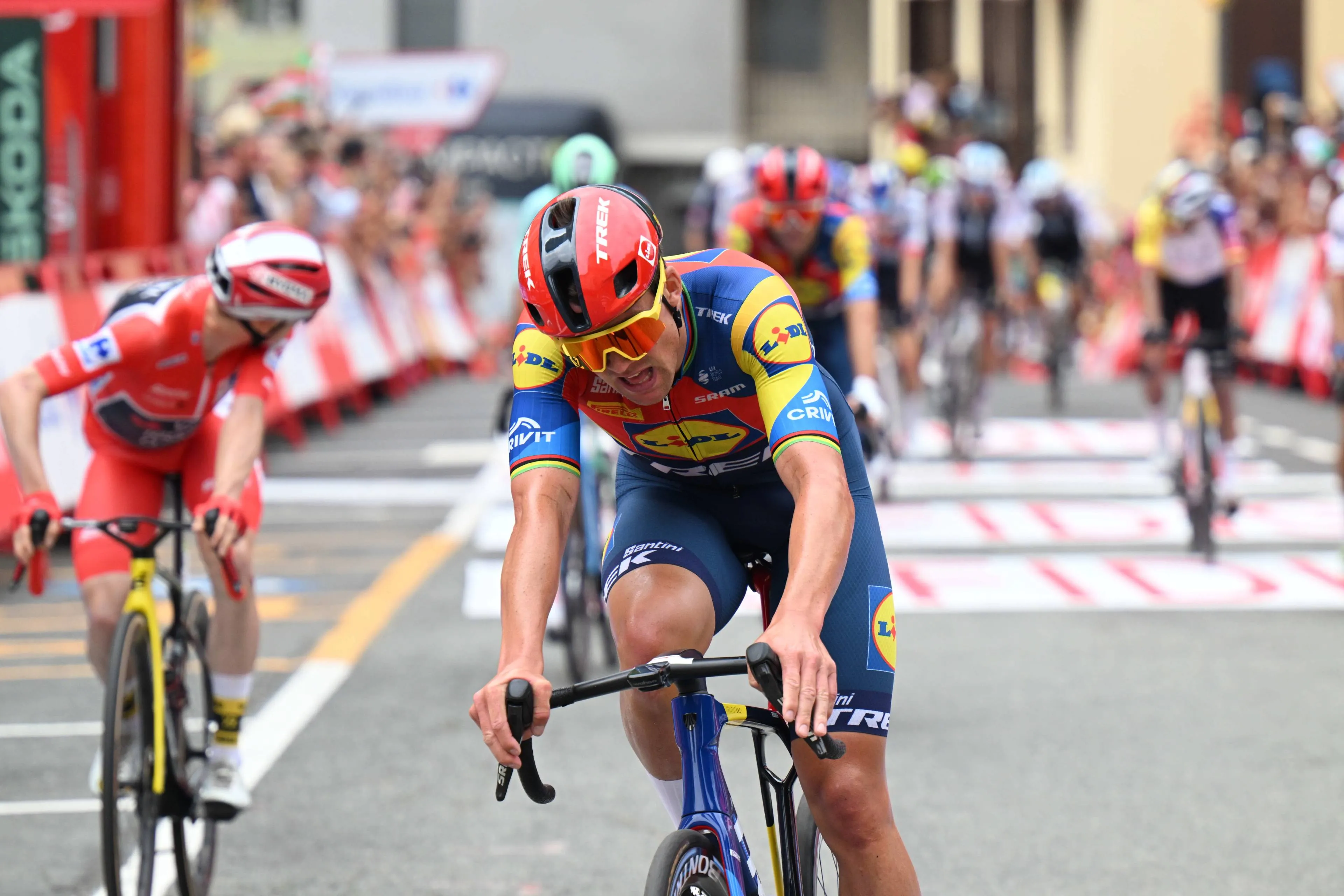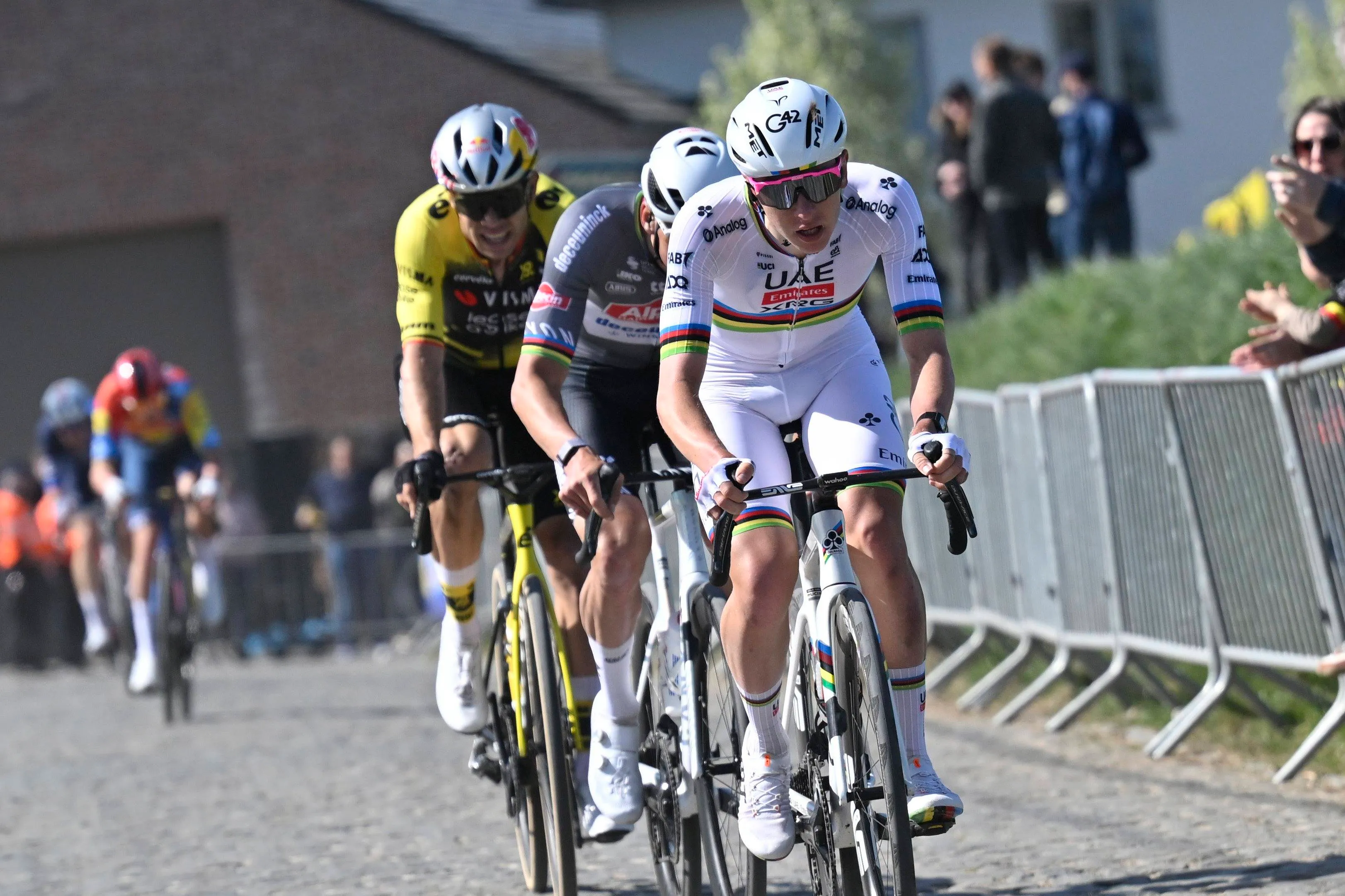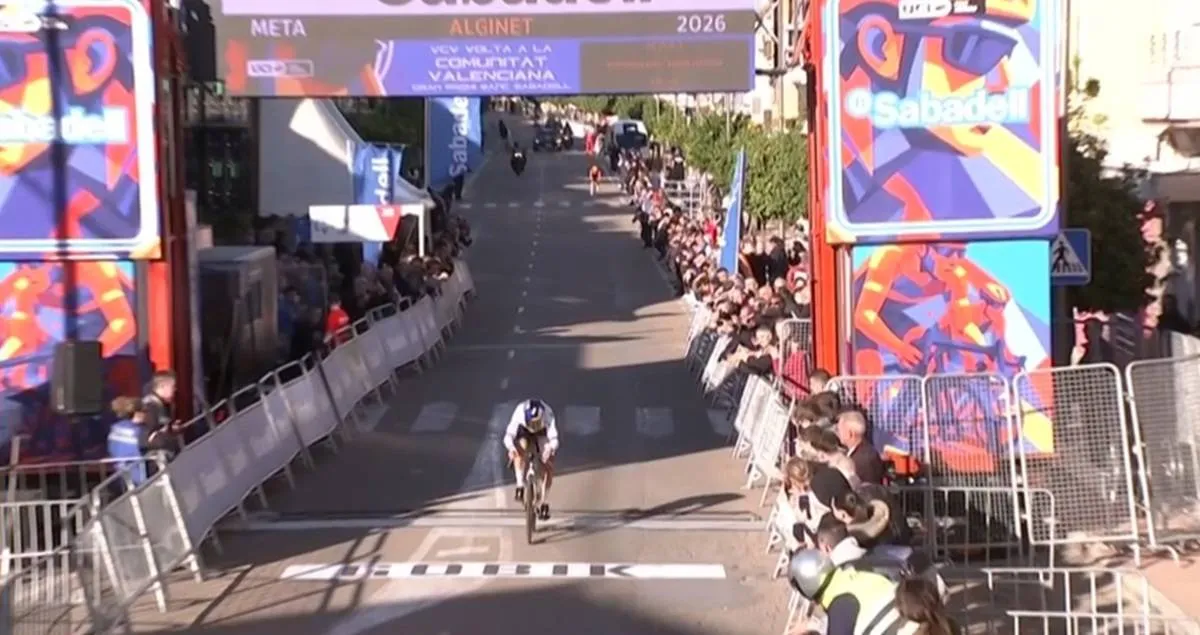“I wish I’d just said what I thought” – Bradley Wiggins reveals true thoughts on Lance Armstrong and Team Sky
CyclingSunday, 18 May 2025 at 09:00
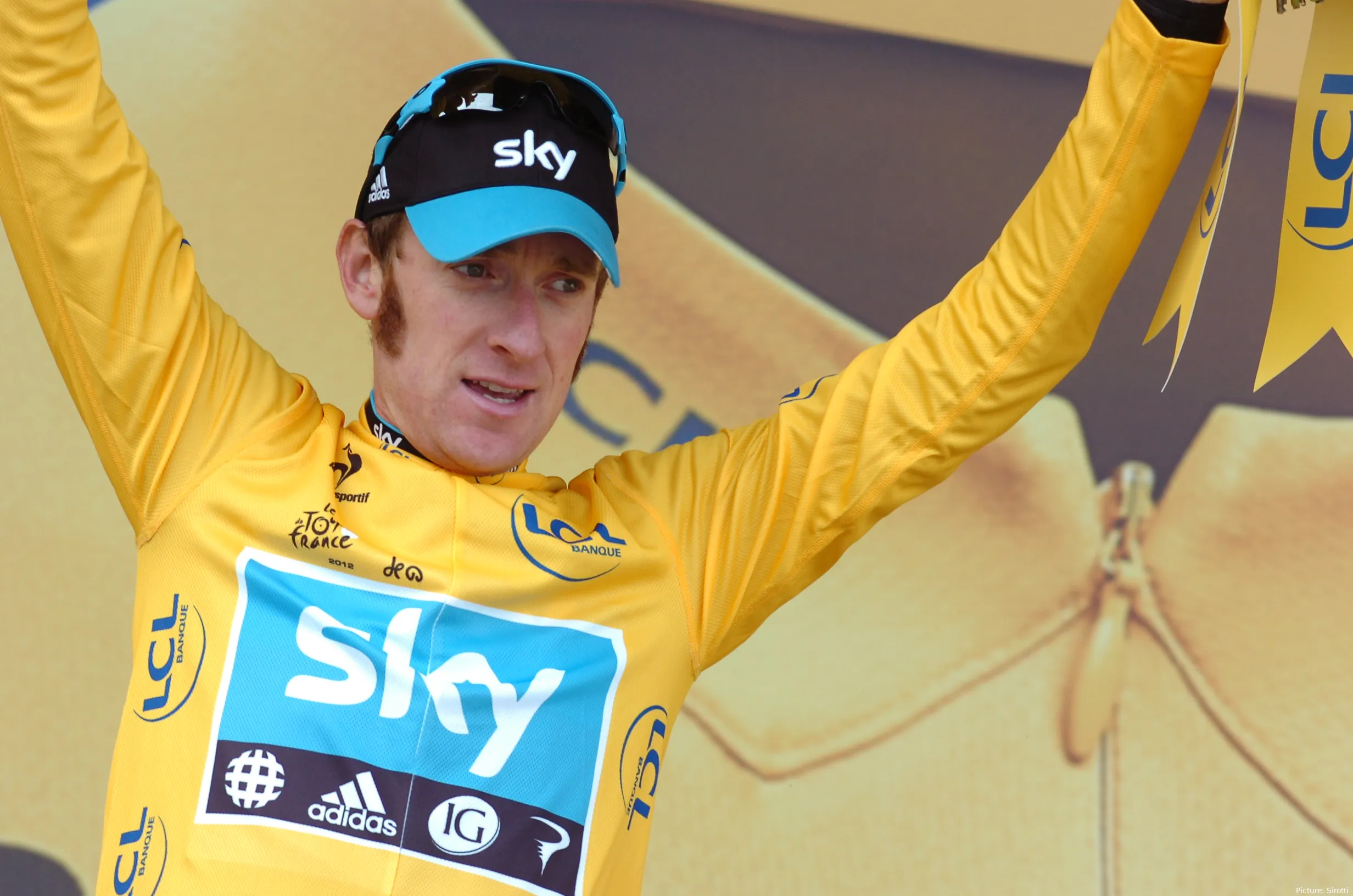
Earlier this week, Sir Bradley Wiggins opened up further
about his post-retirement struggles, revealing more about his battle with
addiction, and the surprising figure who played a key role in helping him
through it: Lance Armstrong.
Speaking on the Cyclist Magazine podcast, Wiggins
revealed that the disgraced American Tour de France winner, stripped of his
seven titles due to his doping scandal, helped fund his therapy and offered
vital support during a difficult period. The revelation adds to Armstrong’s
growing role in supporting ex-professionals, having previously stepped in to
assist Jan Ullrich during his own battle with addiction.
Read also
But what does Wiggins really think of Armstrong?
For Wiggins, the relationship with Armstrong is complex.
Publicly, he once condemned the American after his 2013 doping confession, but
now admits that reaction was not truly his own.
“I was told what to say about Lance Armstrong, in terms of
my opinion and stuff. And that was one of my main regrets... I wish I'd just
said what I thought.”
Back in 2013, Wiggins had echoed the outrage of the wider
sporting world. In a BBC interview at the time, he criticised Armstrong’s role
in denying him a potential podium finish, having originally finished fourth
behind the American.
Read also
Still, 12 years on, most fans of cycling and sport in
general have not forgiven Armstrong for his doping crimes. Yet, he is still a prevalent
figure in the sport, and Wiggins went into more detail about his opinion on the
American.
“I look back now and he certainly robbed me of maybe third
place in the Tour de France and standing on that podium and experiencing what
that was like.”
More than a decade later, Wiggins now suggests that his role
as the face of Team Sky meant he wasn’t always able to speak his truth.
Read also
“It was hard, you know, because I was representing Sky. I
had to say everything that they wanted me to say on that issue. And I wish I'd
have been able to have my own voice on that.”
That feeling of lost autonomy echoes throughout the
interview. Wiggins, Britain’s first Tour de France winner and one of the
defining athletes of his generation, reflected on the wider context surrounding
Armstrong’s downfall and the role of the media in shaping public narrative.
“I think there was a lot of hypocrisy in the media, a lot
that media knew what he was doing,” he said. “And people were sat there
dumbfounded that really, 'he took all this stuff?', and people knew what was
happening. They knew what was happening across the sport. You know, it was a
pandemic in the sport in that sense.
Read also
“It's still an open wound in many ways.”
Wiggins also touched on his disillusionment with Team Sky’s
internal culture during his racing years, particularly its much publicised
“winning behaviours” programme.
“I don't know what it meant. I remember all that crap they
came out with,” he added. “I mean, it's the same thing Dave Brailsford's doing
the same now at Manchester United – Project 21 or whatever it's called. I don't
know how any of that… that was more, maybe for the staff, the winning
behaviours thing.”
Read also
Now nearly a decade into retirement, Wiggins is clearly in a
reflective state of mind, grappling with what the last ten years have meant,
and how lessons learned the hard way have reshaped his view of the people
around him.
“I'm nearly 10 years retired now. I think, God, what's the
last 10 years? And the other thing I probably told my younger self, not
everyone who helps you is your friend and not everyone who hurts you is your
enemy.”
claps 2visitors 2
Just in
Popular news
Latest comments
- MvdP will retire before age is a factor. The Cipressa simply isn't difficult enough for Pogi's climbing dominance to distance a healthy MvdP. Just how this palmares is. If Pogi ultimately wins without MvdP being in the race he may not take as much pleasure in it.NREsq06-02-2026
- But for Pogi brain-farting and crashing in last year's P-R, he wins. My $$ is on Pogi this year. Milan-San Remo is another matter. For Pogi to beat MvdP the latter has to make a mistake. Possible, but MvdP rarely makes mistakes.NREsq06-02-2026
- Of course, there's no denying their tactics of thinning the peloton works. But a race is not just a hill climb. I'm thinking of his 100km solo ride which is actually feasible IF the whole peloton organize a chase on flat terrains after UAE blows thing up on a climb. That's a big IF.
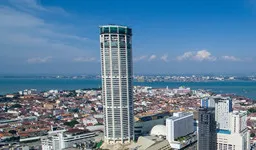 KerisVroom06-02-2026
KerisVroom06-02-2026 - yeah, wondering what he could do in a Liege if he committed to climbing. he has finished as high as 3rd, so he is close.mij06-02-2026
- I love the spring races and was hoping to see MVDP, Tadej, Wout, Mads and more at the top of their game, slugging it out for the win.mij06-02-2026
- looking at the last 20 years of Quick-Step, they just keep winning. so to suggest PL doesn’t know tactics is insane. and sprints need tactics. they need to watch echelons, be on the protected side of the road for the run in. positioning. but ultimately, the legs speak. the fastest riders win more than they lose regardless of tactics. so for Horner to suggest Remco is losing due to tactics is insane. All the tactics in the world won’t do you any good if you don’t have the legs. Remco has not had the legs to compete with Tadej. No one has, except MVDP.mij06-02-2026
- he doesn’t have to hold off a peloton. UAE whittles down the peloton to a few riders. Tadej blows up the rest. And there are not enough people left to organize a resistance. I don’t know what “tactics” horner thinks he can employ against that.mij06-02-2026
- Says the guy who was whining earlier cuz they took the TT bikes out of the race!frieders306-02-2026
- "as I said, I think it shouldn't be up to us [riders]. There should be, I don't know, rules or just someone outside of the riders who will decide what we do or what we don't do." - Interesting take, given how many times riders have (rightly) put their foot down about not riding in horrendous weather, or for neutralisation after mass-crash events - when if it were still up to someone "outside the riders", the race would go on - their safety be damned.antipodeanpedalfan06-02-2026
- It’s not jus MVDP though is it, he’s tried 5x and hasn’t even come 2nd, Mathieu only won twice, though admittedly he sacrificed a 3rd to help Jasper win it.Mistermaumau05-02-2026
Loading
Write a comment
